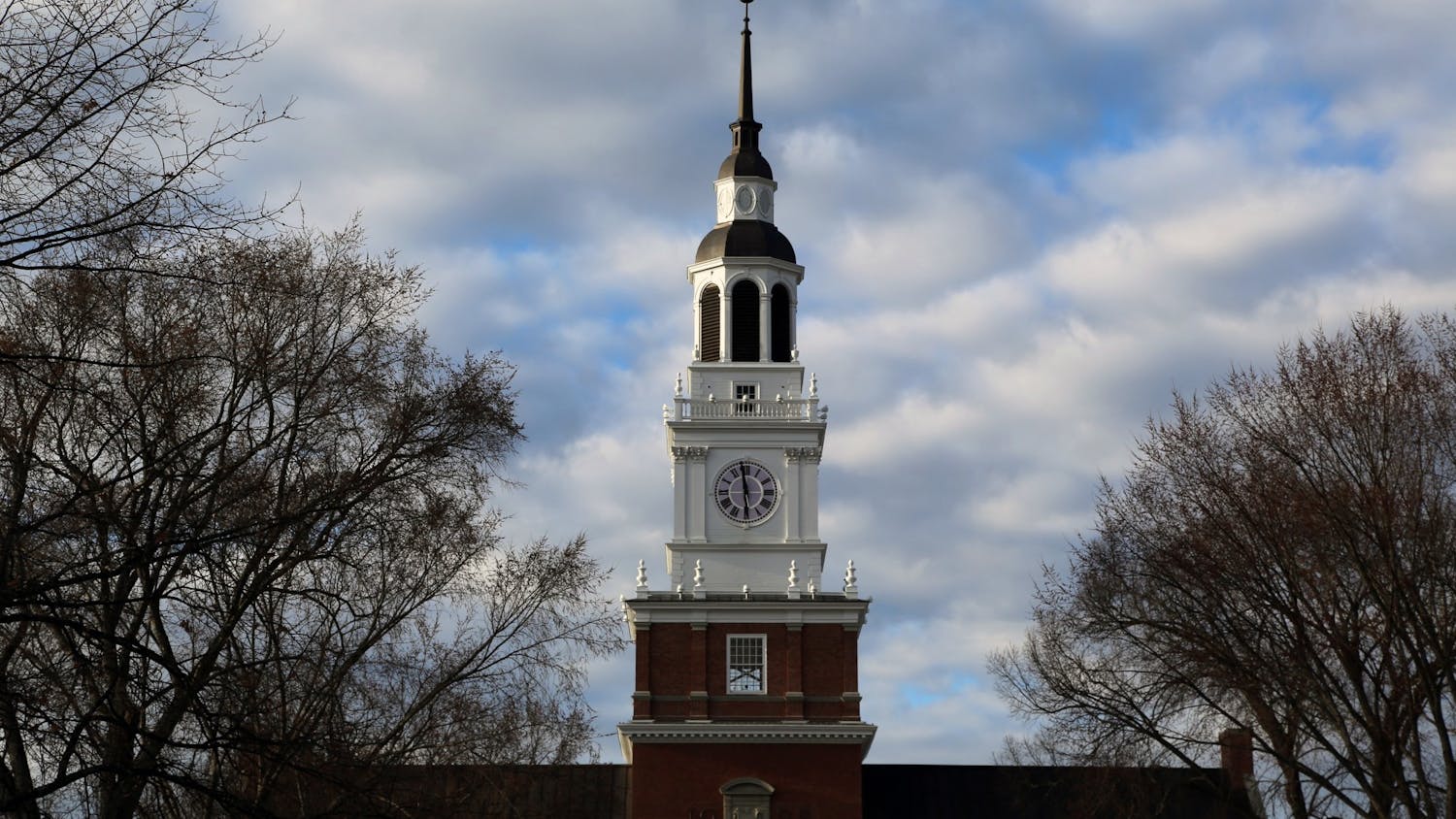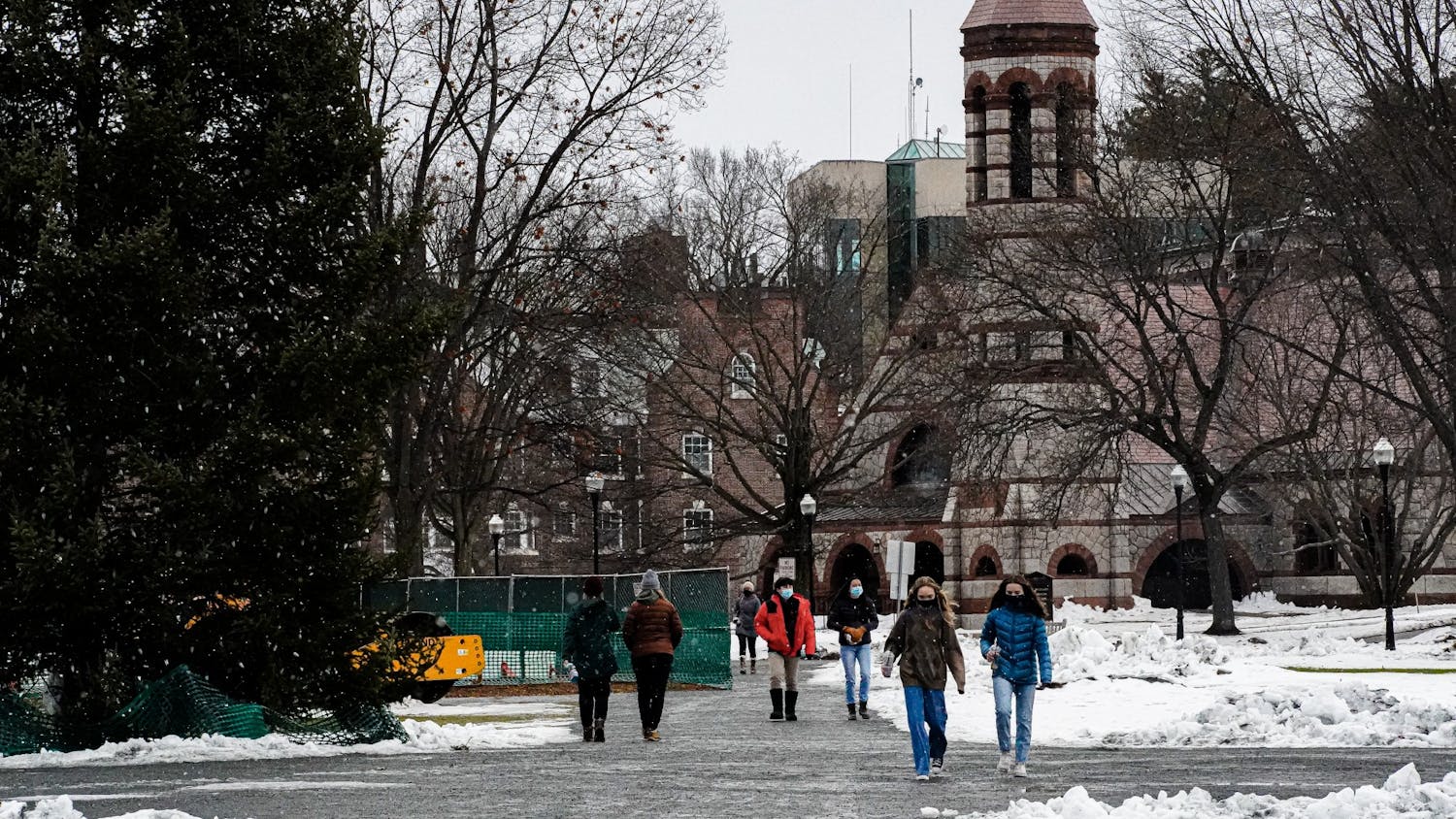After introducing an antigen testing regimen at the beginning of spring term to supplement PCR testing, the College stopped administering rapid antigen tests on April 8 as a result of the lengthy wait times the new regimen caused.
In an email to students with on-campus access on March 15, Dean of the College Kathryn Lively announced that students would be taking two tests upon arrival: a PCR — short for polymerase chain reaction — test and a rapid antigen test. Throughout the fall and winter term, the College only conducted PCR testing.
According to the Centers for Disease Control and Prevention, PCR tests, which detect viral RNA, are more sensitive than antigen tests but typically take more time before yielding results. Antigen tests — which detect viral antigens, or proteins — can produce results in as little as 15 minutes but are generally less sensitive. The CDC also says that it “may be necessary” to confirm antigen results with PCR testing.
According to COVID-19 task force co-chair Lisa Adams, the College adopted antigen testing in the hopes that the method would provide a “jumpstart” on detecting possible COVID-19 infections upon students’ arrival and giving campus “the early warning signal rather than having to wait for the delay of PCR [testing].”
“The rationale behind setting [rapid testing] up was really to be able to identify people — before there was the hiatus in testing, before people had free time — to see if we could catch someone early,” Adams said.
According to Adams, the College originally planned to supplement the existing PCR testing regimen with antigen rapid tests in the spring. She explained, however, that the College decided to stop its antigen testing after the method contributed to a “backlog” of students during and shortly after arrival testing.
In Leverone Field House, students would first take their PCR tests and were then directed by testing staff to take antigen tests at a different station — adding time to the overall testing process.
Adams noted that rapid testing did help identify “some individuals” who were COVID-19-positive. However, after weighing the benefits and drawbacks, she said the College discontinued the practice because having students wait in testing lines for a “very long time...was never our intention.”
“We really wanted testing to be something that was easy to do,” she said. “We certainly didn’t want to disincentivize anything.”
Evan Barrett ’24, who took an antigen test first on March 26 and again on April 8, said it was “nice, especially during arrival” to receive his negative result about 30 minutes after taking his test. But as wait times in the testing line approached “maybe an hour,” Barrett said it began to disrupt his schedule.
“[The process became] pretty inconvenient, especially if [students] had just a short break between classes — suddenly they didn’t have enough time,” Barrett said.
Barrett added that “pretty much everyone he knew” had also experienced long wait times during their arrival testing.
Meg Burkhart ’24, who only took a rapid test once upon her arrival, said that she waited in line for “an hour, or an hour and a half,” adding that the scene was “so congested.”
Barrett said that he had appreciated that antigen testing didn’t let people “slip through the cracks,” but noted that PCR testing is “more convenient.” As opposed to the hour-long wait to begin an antigen test, he said, his regular PCR tests at Leverone now take “less than five minutes” and that his test results usually return the same day or the following morning.
Regarding the College’s decision to stop antigen testing, Barrett said he thinks the campus didn’t “really [lose] anything.”
Russell Chai ’24, who took the antigen rapid test twice, said that around the second and third week of spring term, antigen testing became “less useful,” especially because he was also able to receive his PCR results within several hours of his test procedures.
Adams added that she “anticipates” antigen testing to be reincorporated into summer arrival testing.
Since New Hampshire expanded its vaccine eligibility to non-residents on April 19, more students have been able to secure their doses. Over time, the increase in vaccination among the student body may influence the overall wait time for testing.
On April 9, director of the College Health Service Mark Reed sent an email to the student body encouraging students to forward Dick’s House their vaccination records in order to qualify for reduced testing frequency.
College spokeswoman Diana Lawrence wrote in an email statement that the College continues to see “a high volume” of students participating in surveillance testing, and that as of Apr. 23, “sixteen percent” of the “here and near” students, including undergraduates and graduates, are vaccinated.
“We do anticipate a decrease in testing cadence over time,” she wrote.
Barrett, who received his first dose of the Pfizer vaccine on April 10, says that he is “looking forward” to being tested once a week. He added that he hopes all students will be vaccinated soon to accelerate “things going back to normal.”




